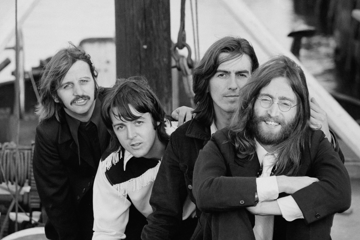Film Carew: Men, Women & Children, The One I Love, The Congress
A "disasterpiece" and two solid films to wash away its bad taste
Men, Women & Children

Something is rotten in the state of Texas. And it’s called the internet! In the air-conditioned nightmare of lilywhite suburban America, an ensemble of catalogue-model teens and hypocritical parents walk around like lobotomised zombies: never laughing (except in getting-to-know-you montage sequences), never speaking what’s on their mind, never having a real conversation. But, lurking beneath this façade, each is harbouring secret desires, living out double-lives online. They’re all unhappy, trying to find solace via their digital devices. Yet computers are making them even more unhappy! They’re ruining their lives!
With all the moral haughtiness and preachy-lesson-teaching of an after-school special, Jason Reitman’s Men, Women & Children delivers a lecture on the perils of pornographied culture; on surveillance-state-America’s cataclysmic failure of moral guardianship. With Emma Thompson providing a voice-over (cribbed from Chad Kultgen’s witless source-text novel) in tut-tutting school-marm tones, it’s akin to receiving a finger-wagging telling-off from Mary Poppins.
Don't miss a beat with our FREE daily newsletter
 The ensemble cast rarely resemble real humans, instead they’re generic archetypes, to be moved around like pawns in intersecting-storylines penned with narrative convenience, all building to moments of dramatic comeuppance. It’s like the Crash of movies-about-sex-and-the-internet.
The ensemble cast rarely resemble real humans, instead they’re generic archetypes, to be moved around like pawns in intersecting-storylines penned with narrative convenience, all building to moments of dramatic comeuppance. It’s like the Crash of movies-about-sex-and-the-internet.
Jennifer Garner, in mousey glasses, plays the mother (actually named Patricia!) who obsessively charts her daughter’s every keystroke, going over printouts of each email and txt like an accountant through spreadsheets. Said daughter, Kaitlyn Dever, covertly tends to a top-secret, off-the-grid Tumblr; and starts up an IRL flirtation with Ansel Elgort, the existential jock who’s quit football to spend more time playing Guild Wars (give me Randy ‘Pink’ Floyd, any day). Much to the consternation of his ex-jock dad, Dean Norris, recently abandoned by a wife who fled to California to stage a tacky posted-to-Facebook photo-shoot of her and her new beau in sunset-dappled love. Norris pulls himself out of his doldrums by romancin’ Judy Greer, a MILFy momager running the soft-porn website of her adolescent daughter, Olivia Crocicchia, a wannabe reality-show starlet who acts all DTF even though she’s never lost her big V. She has her eyes on Travis Tope, a 15-year-old who —with shades of Reefer Madness!— can’t get it up for a girl thanks to his half-decade-long hardcore-porn addiction (be warned, boys: beat-off too much and you’ll break that thing!). Tope’s parents, Rosemarie DeWitt and Adam Sandler, were once so randy they were fucking when 9/11 went down (shades of Nathan Barley!); now, the former has gone online looking to start an affair, the latter has booked himself some $800-an-hour time with a porny-lookin’ escort. Oh, and then there’s the saddest little soap-opera victim of all: Elena Kampouris, who’s starved herself all summer (thanks for the tips, hotbitchesnevereat.com!) in hopes of seducing braindead douchebag Will Peltz, and for whom the film reserves its cruellest fearmongering fates.
As far as films-tearing-the-veil-away-from-suburbia go, Men, Women & Children is reminiscent of other awful exemplars of the genre: American Beauty, Towelhead, The Safety Of Objects, The Chumscrubber, 2:37. The film wants to satirise Garner’s hysterical parenting approach —life under her roof as if Totalitarian Regime— but, given its prim morals, its disapproving tone, and its daytime-telemovie drama, satire is effectively dead-on-arrival. The po-faced delivery of the whole suggests that Reitman sees Men, Women & Children as a film-of-our-times, a Message Movie for Oscar-voters everywhere. Reitman is used to playing to this crowd; with the waaay-overrated Up In The Air and homeskillety Juno, he was, after all, once an Awards Show darling. But Men, Women & Children shows the one-time boy-wonder’s career has entered a tailspin; Reitman somehow following up the erotic-pie-makin’ disasterpiece of Labor Day with something even worse.
The One I Love

 In the thrall of falling-in-love, couples —intoxicated on pheromones, presenting themselves with heightened performance— may not be falling for the real person, but a romantic projection. In The One I Love, the directorial debut of Charlie McDowell (son of Malcolm McDowell and Mary Steenburgen, step-son of Ted Denson; feel that Hollywood privilege), screenwriter Justin Lader explores this idea via a simple sci-fi wrinkle. Elisabeth Moss and Mark Duplass have ended up in couples-counselling; the initial spark of their courtship giving way to a relationship short on romance, long on resentment. So, Danson sends them away on a retreat at a bourgie country guest-houst occupied by two other residents: idealised doppelgängers of themselves; high-concept alternate-reality serving as roleplaying therapy.
In the thrall of falling-in-love, couples —intoxicated on pheromones, presenting themselves with heightened performance— may not be falling for the real person, but a romantic projection. In The One I Love, the directorial debut of Charlie McDowell (son of Malcolm McDowell and Mary Steenburgen, step-son of Ted Denson; feel that Hollywood privilege), screenwriter Justin Lader explores this idea via a simple sci-fi wrinkle. Elisabeth Moss and Mark Duplass have ended up in couples-counselling; the initial spark of their courtship giving way to a relationship short on romance, long on resentment. So, Danson sends them away on a retreat at a bourgie country guest-houst occupied by two other residents: idealised doppelgängers of themselves; high-concept alternate-reality serving as roleplaying therapy.
Its title isn’t just a riff on The Mamas & The Papas, but a smirking inquiry: is the one you love the idealised paramour you first encountered, or the all-too-real person you live with now? And, if presented with the choice between both, where would your affections lie? As with Hugh Sullivan’s The Infinite Man (a film it often resembles), the sci-fi device is used to explore male insecurity and jealousy; Duplass, too, a man threatened by his better self. But once The One I Love tries to explain its inexplicable premise, the tightness of its Twilight Zone-ish two-by-two-hander set-up slackens; Lader struggling to find a way to ‘get out’ of his own narrative invention.
THE CONGRESS

Ari Folman’s follow-up to his animated war-time memoir Waltz With Bashir is a work of wild ambition, depicting a chemically-enhanced near-future in which hive-mind dystopia is a hallucinatory utopia. It’s also a sly Israeli parable, a smart critique of corporate iconography, a vicious satire of Hollywood, and a commentary on the precarious state of contemporary filmmaking. In it, Robin Wright plays herself, an aging starlet given a godfather offer by Danny Huston’s smarmy, villainous Hollywood suit: to be scanned into the studio’s digital databanks, her pixellated likeness owned in CGI perpetuity; this a continuation of movie-biz business-as-usual (“you were always their puppet,” reasons her agent, Harvey Keitel, “they came, they took, they made a crappy rom-com”). With her son, Kodi Smit-McPhee, slowly losing his hearing and sight, Wright signs her life away in maternal sacrifice.
 So ends Act One, before The Congress boldly leaps forward 20 years, from the reality of actors to the surreality of animation; with Wright journeying into the studio’s “animated zone,” awakening in an Oz that’s the collective hallucinatory fantasia of the gilded class. It’s the site of a corporate-rally in which a totalitarian-CEO (Reve Bobs!) announces plans to turn this “Loony Toons playground” into an all-consuming reality, and celebrities into consumable chemical concoctions. Movies, and their stars, will now play out in neural networks; life itself a psychedelic psychotropic state in which time and temporality are subjective experiences.
So ends Act One, before The Congress boldly leaps forward 20 years, from the reality of actors to the surreality of animation; with Wright journeying into the studio’s “animated zone,” awakening in an Oz that’s the collective hallucinatory fantasia of the gilded class. It’s the site of a corporate-rally in which a totalitarian-CEO (Reve Bobs!) announces plans to turn this “Loony Toons playground” into an all-consuming reality, and celebrities into consumable chemical concoctions. Movies, and their stars, will now play out in neural networks; life itself a psychedelic psychotropic state in which time and temporality are subjective experiences.
From there, The Congress descends into dreams within the dreams, the lines between any notion of storytelling ‘reality’ and ‘fantasy’ obliterated as Wright cavorts with the animated Jon Hamm in a lysergic line-drawn realm. Folman lives up to the ambition inherent in the premise, and unleashes his illustrator’s imagination; his film both a shrine to animation’s 2D history, and an attempt to push cinema into a profound new place. That the production even exists seems a miracle; something underscored by the credits, which roll out with names in the thousands, and chronicle a French-Israeli-Belgian-Polish-Luxembourgish-German co-production with animation outsourced to India, Turkey, Ukraine, and the Philippines. As such a vast undertaking, it’s no surprise that The Congress feels like Folman’s philosophical riff on the state of cinema, an artform so intimately related to time, temporality, and dreams.







